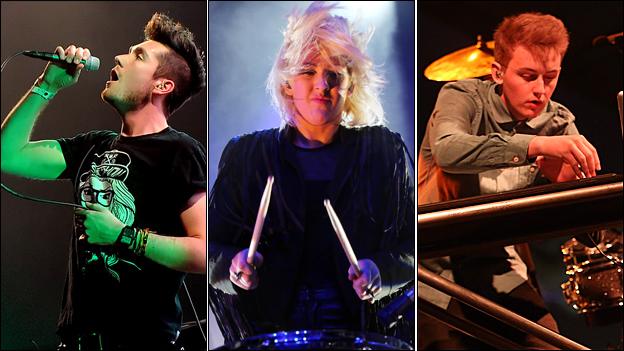Bastille: From Pompeii to the world
- Published
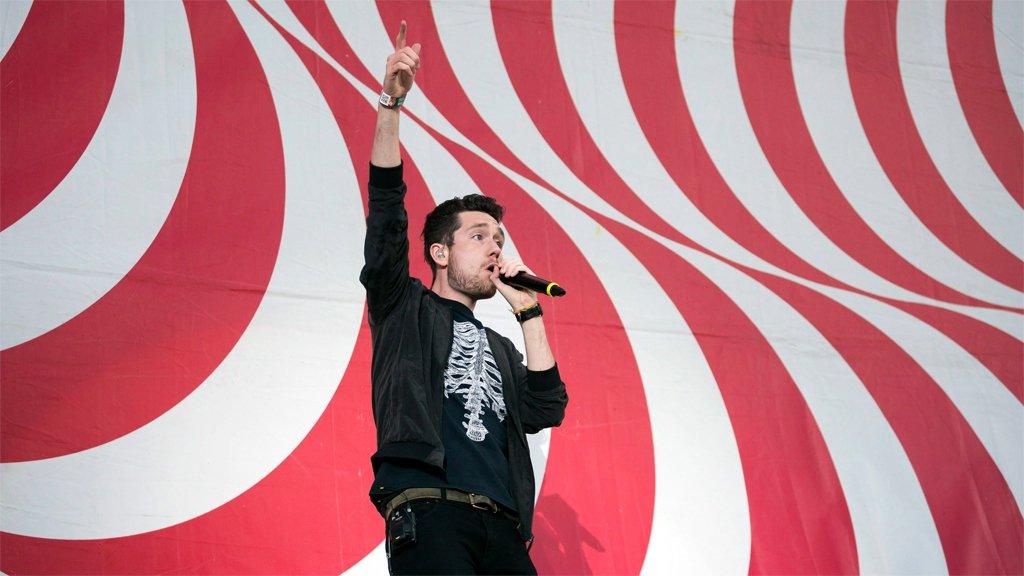
Bastille's Dan Smith: 'This album has been a labour of love for a few years'
It is no exaggeration to say the last five years have been crazy for south London band Bastille. And nowhere is that more apparent than in their new documentary, Help Me Chase Those Seconds.
In the opening moments, the quartet are squashed onto a cramped, subterranean stage somewhere in Brighton.
Then singer Dan Smith announces: "This is a brand new song. It's called Pompeii. It's getting its premiere in front of you seven people."
A lone voice goes "wooo". It does not sound enthusiastic.
But those handful of fans were the first to hear a single that would smash streaming records in the UK and sell more than a million copies in the US.
"For a year it felt like we were chasing that song around the world," marvels Smith, ever so slightly hungover after the documentary's premiere.
"It's mad to think it was just another one of the tunes I wrote on my laptop and my crap little keyboard in my bedroom."
The song's success was even more surprising given the subject matter: "Two ashen corpses who've been destroyed by a volcano, having a conversation about stasis, thousands of years later while they're stuck in the same position.
"It's a well-trodden path, lyrically speaking," he laughs. "But you know what? There's so much brilliant music out there that perfectly encapsulates love and heartbreak and going out and wanting to get drunk.
"For us, we always just wanted to write about things we find interesting."

Bastille (left-right): Dan Smith, Kyle Simmons, Will Farquarson and Chris Wood
The success of Pompeii and its parent album Bad Blood took the band around the world but, as the documentary illustrates, that robbed them of time to write a follow-up.
"How's the album progressing?" director Tom Middleton invariably asks when he catches up with the quartet. "Since we last spoke, it's not progressed one iota," comes the reply.
On the upside, that gave them plenty of time to shake off the second album jitters.
"There was a phase a couple of years ago where we were like, 'Right, let's do really heavy guitar music,'" says Smith. "And then I got really obsessed with dark, alternative R&B and we spent a while making that."
In the end, the group went back to their roots as mixtape makers - gleefully flitting between genres, while throwing in film quotes and mysterious lines of dialogue.
"I love big melodies and I love a chorus - but I think anything and everything else is completely fair game," says Smith.
"There's heavy guitars and there's hip-hop production and weird atmospheric Tarantino moments, then it bursts out into big strings. We wanted it to be like a soundtrack."
The result is Wild World, an ambitious, 19-track collection that has spent two weeks at the top of the charts.
Smith's lyrics continue to venture into unlikely territory, with the song Four Walls inspired by Truman Capote's true crime novel In Cold Blood.
Over a cold, buzzing synth line, the singer addresses quadruple murderer Perry Smith: "What you have done is terrible... These four walls will keep you, until you face the rope."
But he refuses to condone the criminal's death by hanging, singing: "Now we're faced with two wrongs."
Smith explains: "We're not particularly calculated when we write songs. Then suddenly it was like, 'Oh God, I've just written a song about In Cold Blood and it's a meditation on the death penalty!'
"That wasn't remotely the intention, it just sort of happened."
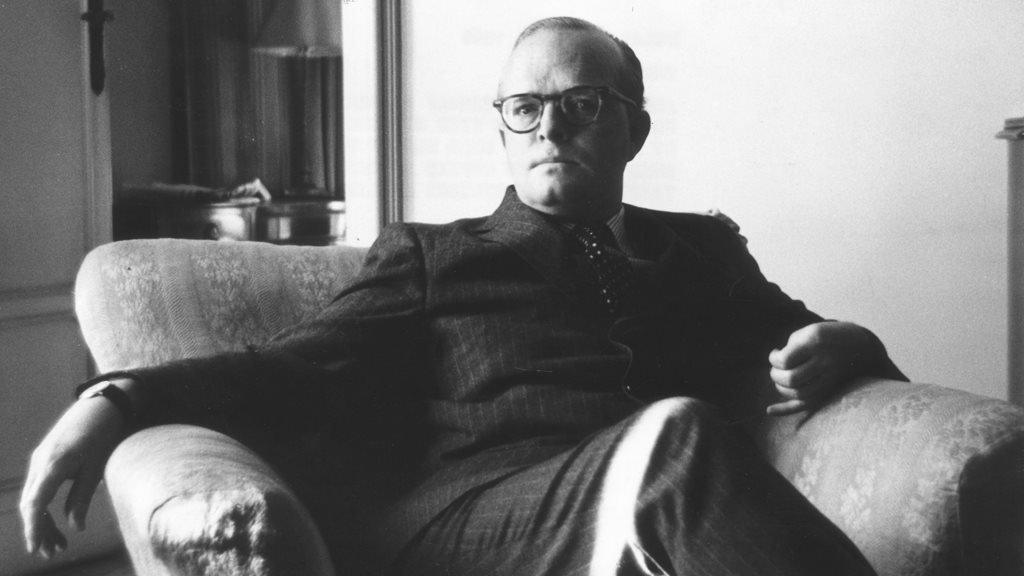
Truman Capote's In Cold Blood was one of the first true crime novels
Four Walls ends with a phone call from death row, in which the convict blames his crime on his upbringing. It is neither a genuine recording, nor a direct quote from Perry Smith, but Bastille use it to draw the audience closer and "add some layers to this weird world that we've tried to create".
Details like that help explain the fervour of Bastille's fans, who sift through the band's social media accounts for lyrical clues, musical influences and hidden messages (the stadium-sized choruses don't hurt either).
The samples stem from Smith's encyclopaedic knowledge of film - but getting them onto the record proved challenging.
"With the mixtapes, we just nicked them off YouTube and DVDs. We were so naive," he says. "Bizarrely, hundreds of thousands of people downloaded them and, you know, there were a few lawsuits.
"This time round, because it was an actual album, the label were quite keen to go down the legal route."
The highest-profile sample comes on the single Good Grief, which lifts a quote from Weird Science - John Hughes' 1985 film, in which two computer nerds "create" Kelly LeBrock for a school science project.
Incredibly, it was the easiest sample to clear.
"I have the email from Kelly LeBrock screen-grabbed on my phone," grins Smith. "She actually said, 'If you ever want me to come and perform it with you, I'd love to. So at some point in the future, we'll try and make that work."
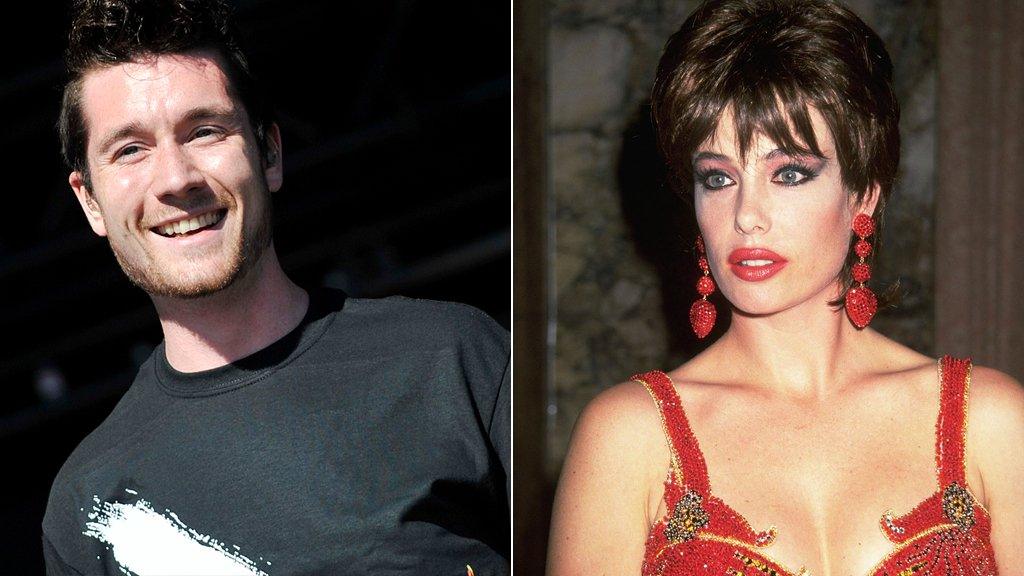
Kelly LeBrock turned out to be a fan of the band
Another quote was originally from an Italian sci-fi called Cosmos: War of the Planets ("which has a stonking 1.5 out of 10 on IMDB", Smith points out).
"We found it belonged to this obscure, old Italian film company, so we had to get someone we work with in Italy to drive down and knock on this dusty door and ask the owner for permission.
"But we literally couldn't find them - so we had to rewrite and recreate the whole clip.
"But I'm a massive geek, so I love that stuff. I always imagine, when I'm listening to The Archers, the little mini door they shut and the trays of gravel they walk in. Doing that for Hollywood films would be so amazing."
He will have to wait, though, as Bastille have the next 12 months mapped out, with a tour that starts in the US next week and keeps rolling until September 2017.
Hitting venues like London's O2 Arena and the Troubador in Los Angeles, it is a far cry from their first jaunt in 2011.
"It was us and Kate Tempest and a whole bunch of bands who got on this barge that sleeps four people," says Smith.
"Every night we'd play a different town up the Thames, starting in London and ending in Oxford and stopping at lots of interesting places on the way, playing little pubs and doing gigs on the boat."
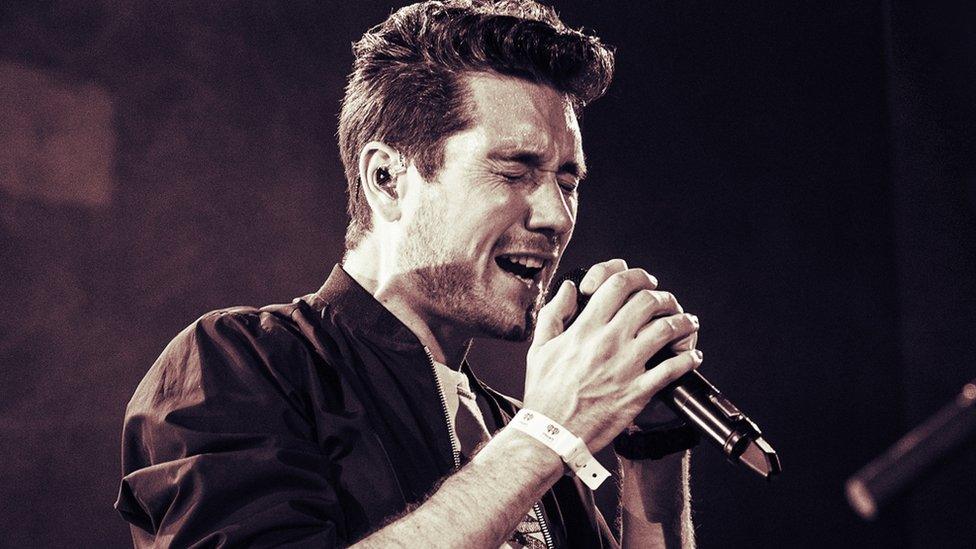
'We treat every single song like it's the most important,' says Smith
Later that year, they played Glastonbury for the first time. "Only three of us could get in," Smith laughs. "So one of us had to be smuggled in in the back of a sofa."
By contrast, the band's documentary ends at this year's Glastonbury, as Bastille take the stage in front of 60,000 people.
"As a band, we don't really sit around and pat ourselves on the back and reminisce that much," says Smith. "So it took watching the film to remind us of some of the things we've done.
"We're so lucky. It is nuts."
Wild World is out now on Virgin/EMI Records.

Follow us on Twitter @BBCNewsEnts, external, on Instagram at bbcnewsents, external, or if you have a story suggestion email entertainment.news@bbc.co.uk, external.

- Published14 September 2016
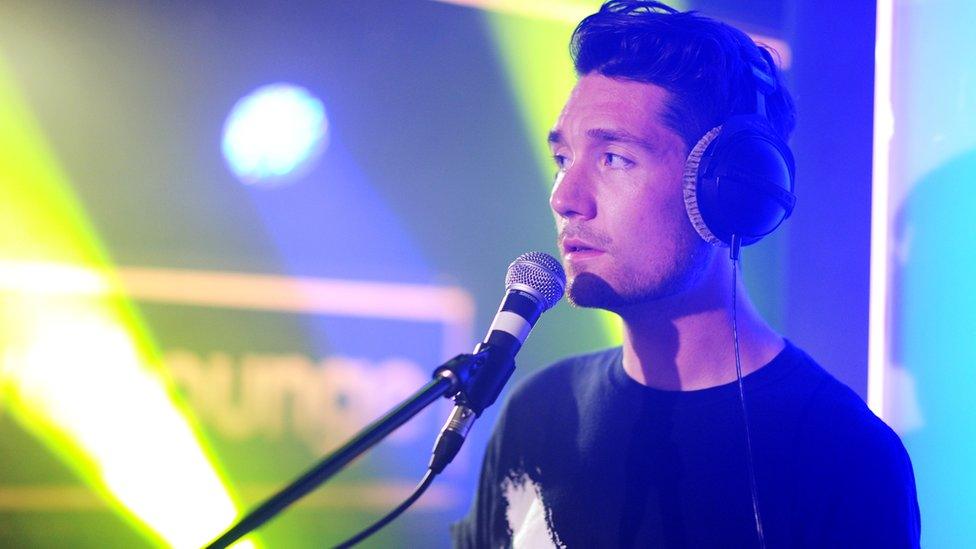
- Published23 June 2014
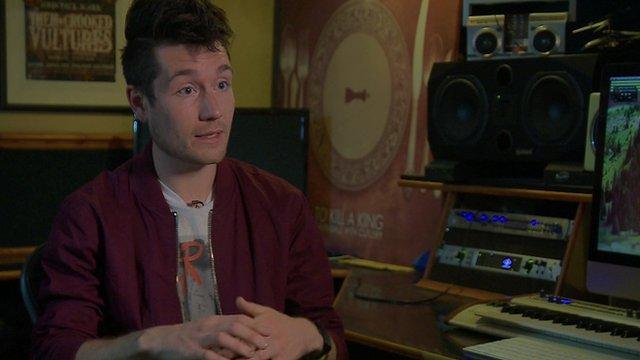
- Published9 January 2014
